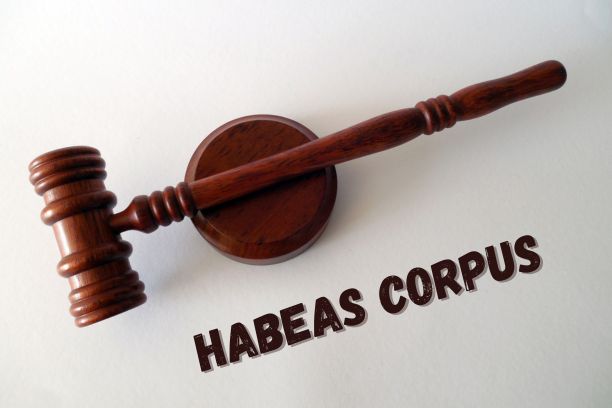
What Is Habeas Corpus? Meaning, History, and Why It’s Crucial for Your Freedom
Imagine being held in detention without charge, without access to a court, and perhaps without even knowing why. Sounds dystopian—but historically, such abuses happened often. The concept of habeas corpus exists to prevent exactly that: arbitrary detention and unchecked governmental power.
Habeas corpus, from Latin meaning “you have the body,” is a legal procedure that ensures anyone confined has the right to be brought before a court to assess the lawfulness of their detention. It is foundational to civil liberties, due process, and constitutional law. In this article, we’ll explore its meaning, history, process, modern relevance, and how it protects freedom in democracies.
Habeas Corpus Meaning in Law
Definition: A writ of habeas corpus is a court order to a custodian (for example, a prison official) to bring a person in custody before the court. The court then evaluates whether the detention is lawful.
- Who can file: Typically, the detained person or someone acting on their behalf (family or lawyer) can file a petition.
- What it tests: Not guilt or innocence, but legality of the detention—was due process followed? Is there a valid legal basis?
Variants of habeas corpus petitions:
- Pretrial — when someone is arrested but not convicted yet, and seeks review of their detention.
- Post-conviction — after conviction, the detainee challenges legal or constitutional flaws in the conviction or the sentence.
- Emergency or special circumstances — such as immigration detention, military detention, or unlawful executive detentions.
Why it matters: The key purpose is to prevent detention without lawful authority. It stops the state from holding people indefinitely or unfairly.
Historical Background: From Magna Carta to Modern Law
The concept can be traced back to the Magna Carta of 1215, which limited the King’s power to unlawfully detain subjects. Later, the Habeas Corpus Act of 1679 in England formalized many protections.
In the United States, the Constitution includes the Suspension Clause: “The Privilege of the Writ of Habeas Corpus shall not be suspended, unless when in Cases of Rebellion or Invasion the public Safety may require it.” Congress later authorized federal courts to issue habeas corpus writs, ensuring that no one can be imprisoned without lawful justification.
Over time, courts expanded the writ’s application to include challenges to state convictions, military detentions, and violations of constitutional rights.
How Does the Writ of Habeas Corpus Work?
Here’s a step-by-step outline of how it typically functions:
| Step | What Happens |
|---|---|
| 1. Filing the Petition | The detained person or their legal representative prepares a petition stating why the detention is unlawful, citing legal grounds and factual details. |
| 2. Court Issues Writ | If the petition is valid, the court issues the writ, ordering the custodian to bring the detainee to court and justify the detention. |
| 3. Custodian Responds | The official must produce the detainee and present evidence supporting the legality of the confinement. |
| 4. Judicial Review | The judge examines whether the detention meets constitutional and legal standards. |
| 5. Order of Relief | If the detention is unlawful, the court orders release; if lawful, the detention continues. Sometimes, the court modifies the detention or corrects procedures. |
Habeas corpus ensures that even those in custody retain their constitutional protections and the right to challenge government action.
When Can Habeas Corpus Be Suspended?
While habeas corpus is deeply protected, there are rare constitutional exceptions. It may be suspended only in cases of rebellion, invasion, or when public safety demands it.
Historically, it has been suspended during periods of national crisis—such as the American Civil War, Reconstruction, and World War II. Importantly, only the legislature has the power to suspend the writ, not the executive branch.
This limitation ensures that the government cannot arbitrarily deny citizens their right to challenge unlawful detention.
Modern Applications and Famous Cases
In modern times, habeas corpus remains a vital legal instrument used in various contexts:
- Wrongful Convictions: Prisoners who have exhausted all appeals often use habeas corpus to challenge constitutional violations that occurred during their trials.
- Military and Wartime Detentions: Individuals detained during war or anti-terror operations have invoked habeas corpus to seek judicial review of their confinement.
- Immigration Cases: Non-citizens detained pending deportation can file petitions challenging the legality of their detention.
Notable cases, such as those involving Guantánamo Bay detainees, have reinforced the principle that even during national emergencies, the courts retain the power to ensure justice.
Why Habeas Corpus Is Important Today
- Check on Government Power: It ensures that no individual is held without legal cause, preserving the balance between state power and personal liberty.
- Due Process & Fairness: The writ compels the government to follow the law—filing charges, providing access to counsel, and ensuring fair hearings.
- Human Rights Protection: It upholds the dignity and rights of individuals, serving as a global standard for justice.
- Prevention of Abuse: Especially in cases of political, military, or immigration detentions, habeas corpus acts as a shield against misuse of authority.
Habeas corpus remains one of the strongest tools for defending civil liberties in modern democracies.
Difference Between Habeas Corpus and Other Writs
| Writ | Purpose | When Used |
|---|---|---|
| Habeas Corpus | To challenge unlawful detention | When someone is imprisoned or restrained without legal justification |
| Mandamus | To compel a public official to perform a duty | When an authority fails to fulfill a legal obligation |
| Certiorari | To review lower-court decisions | Used for constitutional or procedural errors |
| Quo Warranto | To question someone’s right to hold an office | When an individual occupies a position without legal authority |
Each writ has a unique role, but habeas corpus stands apart as the direct protector of personal freedom.
How to File a Habeas Corpus Petition
Step-by-Step Process:
-
Choose the appropriate legal basis: Determine which law applies to your case (for instance, challenging state conviction, federal detention, or immigration custody).
-
Prepare the petition: Include details such as name, location of detention, reason for claiming the detention is unlawful, and any supporting evidence.
-
File in the correct court: Usually, petitions are filed in the jurisdiction where the detainee is held.
-
Pay filing fees or request a waiver: Indigent petitioners may request a waiver under “in forma pauperis.”
-
Await judicial review: The court will evaluate whether to issue the writ and hear arguments from both sides.
-
Legal representation: While not mandatory, having an experienced appellate or constitutional lawyer improves the chances of success.
Filing a habeas corpus petition is a technical process that requires accuracy, but it remains a powerful remedy when fundamental rights are at stake.
Common Misconceptions About Habeas Corpus
| Misconception | Reality |
|---|---|
| “It frees guilty people.” | No. It only checks the legality of detention, not guilt or innocence. |
| “Only prisoners can use it.” | It can apply to any person unlawfully detained, including those in immigration or military custody. |
| “It can be filed anytime.” | There are specific timelines and conditions that must be met before filing. |
| “The President can suspend it anytime.” | Only the legislature can suspend it, and only under extreme circumstances such as rebellion or invasion. |
FAQs
Q1: What does habeas corpus literally mean?
It means “you have the body,” referring to the requirement that authorities must produce a detained person before the court.
Q2: What are the conditions for habeas corpus?
The person must be under detention or restraint, and there must be reasonable grounds to believe the detention is unlawful.
Q3: Can habeas corpus be suspended?
Yes, but only during extreme situations such as war or rebellion and through legislative authority.
Q4: Who can file a habeas corpus petition?
Either the detained person or someone acting on their behalf, such as a lawyer, family member, or friend.
Q5: How long does it take for the court to decide?
The duration varies depending on case complexity and court workload; some are resolved in days, others in months.
Conclusion: Habeas Corpus as a Shield of Freedom
In every democracy, the power to question authority is essential to maintaining freedom. Habeas corpus ensures that no one is deprived of liberty without due process of law. It is the ultimate safeguard against unlawful detention and a testament to the principle that the government must always answer to the rule of law.
Even in modern times of security concerns and emergencies, habeas corpus stands firm as a beacon of justice—reminding us that liberty is not a privilege granted by the state, but a right protected by the constitution.
If you or someone you know faces unlawful detention, consulting a qualified constitutional or appellate lawyer can help navigate the process and uphold this vital right.
Visit Lawyer Writes for the latest legal news, insights, and updates.



